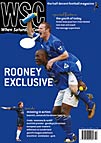 Stephen Wagg offers a revisionist view of Adam Crozier's time in charge at the Football Association
Stephen Wagg offers a revisionist view of Adam Crozier's time in charge at the Football Association
When Adam Crozier left his job as chief executive of the Football Association, I was intrigued by the language in which this was rendered by the football media. It seemed for all the world as if some tribune of the people, having heroically held the line against “commercialism” in the game, had now departed the stage. In his wake the fat cats of the Premier League would now continue to boost their own financial power at the expense of ordinary football folk. When one considers the circumstances of Crozier’s appointment and the key events of his comparatively short tenure at the FA, this seems more than a little absurd.
